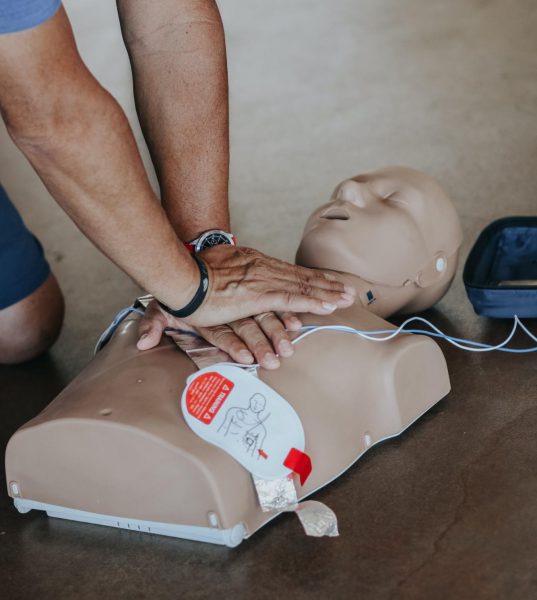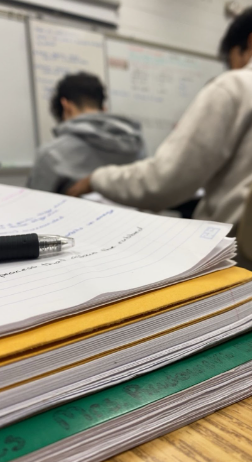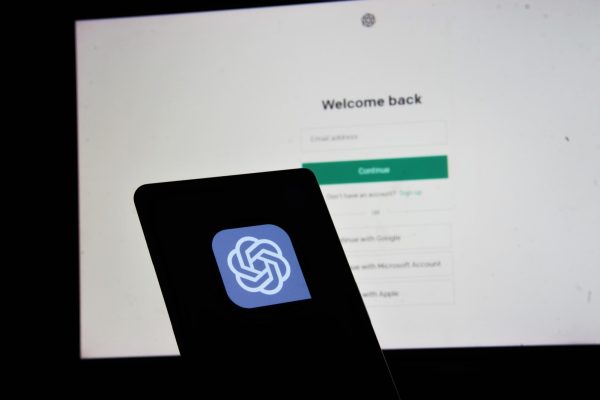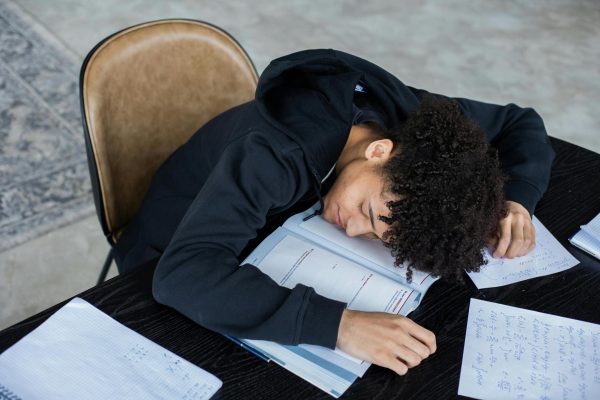5 Ways to Keeping the School Year Simple and Organized
The beginning of the school year can often be equated to the first day of the New Year; fresh with expectations, hope, determination, and resolutions.
Well pretty much until the next week, when most of us have our aspirations crushed by lethargy or just simple lack of enthusiasm.
It’s been a month into the school year (yes, already) and if you’re anything like the majority of the school you’re either in one of two places: the neat and organized one or the one who tried to be neat and organized yet now found yourself with papers crushed at the bottom of your backpack, a messy pencil case with barely any pencils, and one folder hanging by a mere (and quite often literal) thread.
If you’re the first one– well, quite frankly, I don’t believe you and you’ll join the rest of us soon.
If you’re the second one– welcome, you’re not the only one! Here’s what you need to do to actually be organized and successful for the year.
You probably walked around school the first day, with people having agendas with sticky notes, impractical agendas, and lockers filled with organizers– wait for the first week to end. Systems are often effective, only if you make time to manage them. If you’re willing to put time into flipping to an exact page, putting bookmarks, and fixing your system constantly, go for it. Everyone tries it, and it only works for a small some. Here’s a tip: keep it simple. Don’t come into the year with an attractive system that only looks good and doesn’t work. Less is definitely more.
- Use a simple agenda system: Not everyone’s up for a year-wide agenda, especially one with small, little lines that takes not only a while to get used to, but a lot of work to keep up and organized. There are many more easier and simpler ways to keep track of your agenda system. If you’re a pen and paper type of person, get a small notepad, a pad of sticky notes, or simply use a section in your notebook. If you use sticky notes, just write on the top of the pad what assignments you have. When you come home and finish the assignments, check them off and throw the page away. If you’re using a notebook, just cross out the previous day’s section. Now, if you like using your phone or going digitally, you can use many note keeping applications. You can use your phone’s note app or you can use Google Keep, which is like the Google version of sticky notes (yes, Google has a version of everything). Agendas don’t have to be so complex, they’re as simple as you make it.
- Use one or two notebooks: Teachers often demand one subject notebooks per class. Most people get one book per class and carry around lots of weight, and constantly run back to their lockers to get the next class. And the worst is when you bring the wrong notebook to class and have to either make the dreaded run to your locker halfway across the school or live with it and write in that notebook. Now, you have math in your english notebook or vice versa. Having one or two multiple-subject (usually five) notebooks will not only help in organization, it will also help with weight carried and how often you need to go to your locker. They have smaller sections so you can keep important papers in them so they’re within reference for the entire year.
- Keep only what is necessary: Teachers give piles and piles of handouts and outlines for you to use for reference. Although they are for educational purposes, they become overbearing at times, especially when it comes to organization. The type of folder that works for you, should be small and neat. It should only have what is necessary. After receiving that paper, use your judgement and decide if it’s necessary to keep. Now, I didn’t say throw away all your papers, so don’t go decide to burn everything in a holy bonfire. Keep all your papers at home, in piles, organized per subject. This way, even if you need a certain paper much later on in the year, you know where it is. Plus, they make for great records of your past.
- Plan Ahead: It doesn’t matter whether it’s planning the day or planning the week– you need to plan for more than the current moment. With the assignments you’ve been given for the day, you need to first finish what is absolutely necessary for the next day. But, as students, long term assignments are constantly on our laps waiting to be finished. With all these assignments, students constantly feel the need to try and multi task, start one assignment, continue another, jump to one, as they feel so. To be effective, you must think of your assignments by priority. However, make yourself a deadline, not just the class assigned deadline, but the deadline for the day. When you get home, allocate only a certain amount of time for your homework, and don’t drag it out till the very last minute (and yes, I do mean that literally for students who pull all-nighters to finish assignments until before school starts or at 11:58 pm for an 11:59 pm deadline) because it makes not only your own life harder, it takes a toll on your mental and physical health. Allocate only up till a certain for homework, and use the rest of the day for time with your family or extracurriculars.
- Remove your distractions: Yes, I am talking about your phone. Yes I know you’re on it right now, while reading this. Why? Because I am you. Notifications constantly come in from Snapchat, Instagram, Houseparty, and iMessage, and all they do is impede you from your work. So you put it down, and the moment a notification comes from Snapchat, your attention diverts. You start overanalyzing the snap, just pondering on the many possibilities of what it could be. You stop doing your homework and all you do is think about the snap because you can’t use your phone since you’re doing your homework. You think and think and you finally give in to what probably has a 95% chance of some random person sending you a black screen with the letter ‘S’ for streaks. Remove yourself from all distractions. Keep everything outside of where you sit. Your phone (yes, it can be agonizing) and sit in a quiet room and start your homework. By eliminating all distractions, you can get your homework done quicker with most likely time to spare to do other things and get other assignments out of your way.
And trust me. It isn’t easy. Developing a work ethic and eliminating distractions can be the hardest thing for children to do, especially high schoolers. But following the above steps can make your school year easier and more organized, and help you focus your energy on homework, instead of organizational issues or external factors.
So yes, keeping it simple is best not only for the short run, but also for long term goals. Using basic and practical methods allow your school year to be a success. Instead of giving up on the second week about organization and keeping track of assignments, here’s a tip: keep it simple.





















